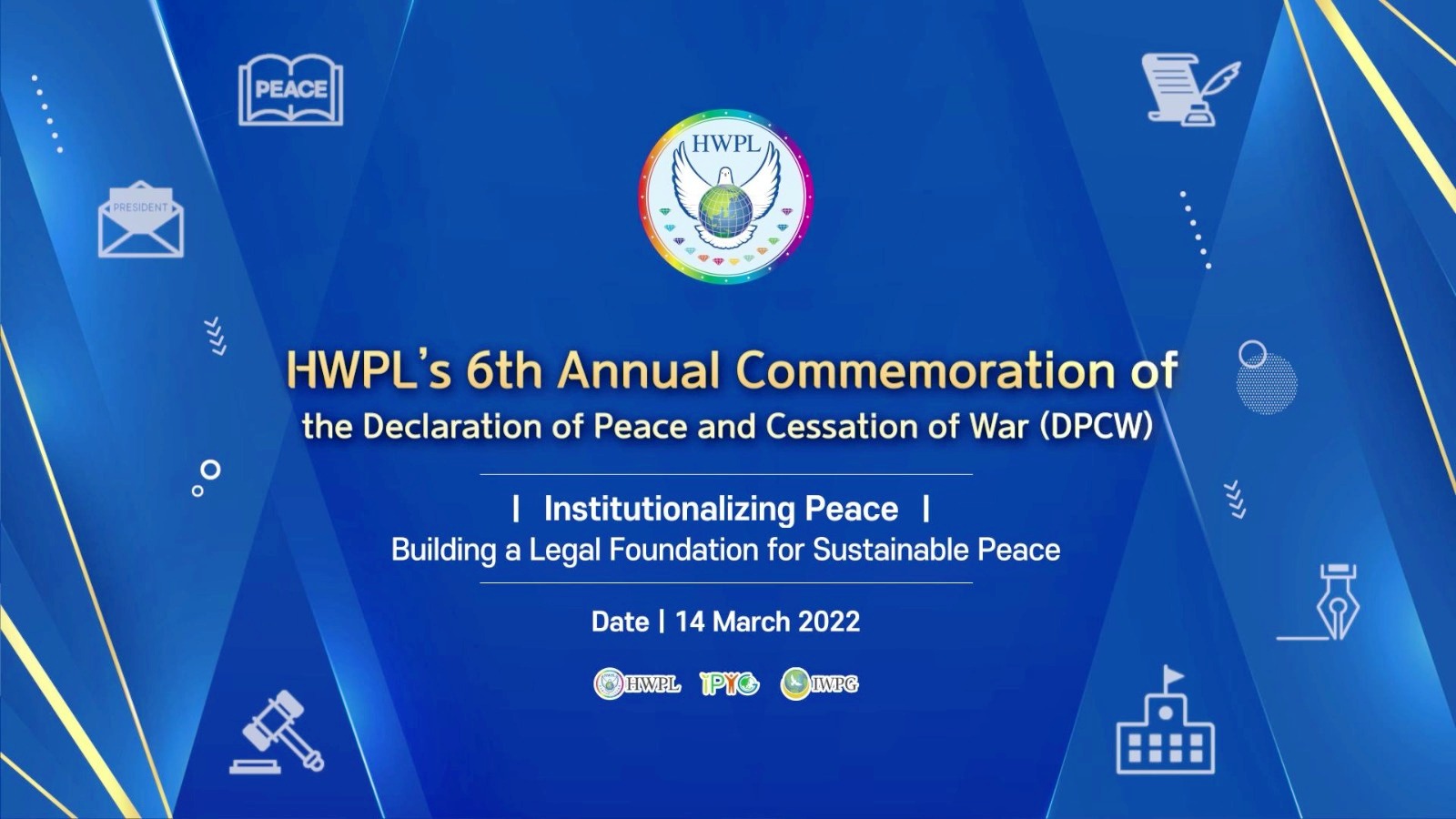Peacebuilding is currently required to grow into a system that promotes the ideals, norms, and culture of peace for all countries, communities, and individuals, based on the shared principles of cohabitation and interdependence of the global community.
The theme of ‘HWPL’s 6th Annual Commemoration of the Declaration of Peace and Cessation of War (DPCW)’ was Institutionalizing Peace: Building a Legal Foundation for Sustainable Peace,’ which was held online on 14 March 2022 with over 5,000 participants.
Heavenly Culture, World Peace, Restoration of Light (HWPL), a UN-affiliated NGO, has backed joint efforts by governments and civil society to institutionalize peace in each community. Its Declaration of Principles and Guidelines for Citizen-Led Peace Advocacy, issued in 2016, is in line with international organizations such as the United Nations, the African Union (AU), and the European Union (EU), which have emphasized normative guidance as a standard for substantive conflict resolution with the participation of women and youth.
“The precondition for achieving peace is securing peoples’ inalienable rights, which include equality before the law, equal protection of the law, non-discrimination, freedom to associate, freedom to assemble, and freedom to express,” said Dr. Kamal Hossain, President of the International Law Association (ILA) Bangladesh Branch.
“In the world’s continuous problem, governments debate what type of action would be the appropriate action to do in order to overcome the emergency crisis,” said Ms. Anna Cervenakova, a member of the HWPL International Law Peace Committee. By overcoming the public health crises, climate change, economic decline, and constraints on human rights, we can reach a place where we can see how these burdens can be alleviated.
Prof. Rommel Santos Diaz of the Universidad INCE’s Department of International Law stated that government offices in the Dominican Republic, including the Senate, Ministry of Foreign Affairs, and Attorney General’s Office, have been collaborating with NGOs for the purpose of the “state’s decision-making for public policies on citizen security and human rights” based on the DPCW.
Imam Moulana Shafiek Nolan of Westridge, South Africa, expressed his concern about the prevalence of religious conflicts by saying, “The DPCW emphasizes the significance of religious peace and the end of religious conflict.
Chairman Man Hee Lee of HWPL said that wars and clashes proceed to happen since “wars can be activated in case it is purportedly fundamental agreeing to the current universal law, which is why this cannot put an conclusion to war.” He highlighted that all individuals of the worldwide town ought to be joined together as one as “messengers of peace” to “certainly make a thing (universal law for peace) that can bring almost peace.” On February 28, HWPL issued a explanation on Russia’s attack of Ukraine that incorporates outcast security and worldwide youth solidarity against war and is conveying it to 192 nations. The DPCW presents standards of peace to be advanced by the universal society such as denying the utilize of constrain, cultivating devout flexibility, and civic support to spread a culture of peace. It highlights that economical peace can be accomplished through all individuals of the worldwide society by recognizing not as it were nation-states but moreover universal


